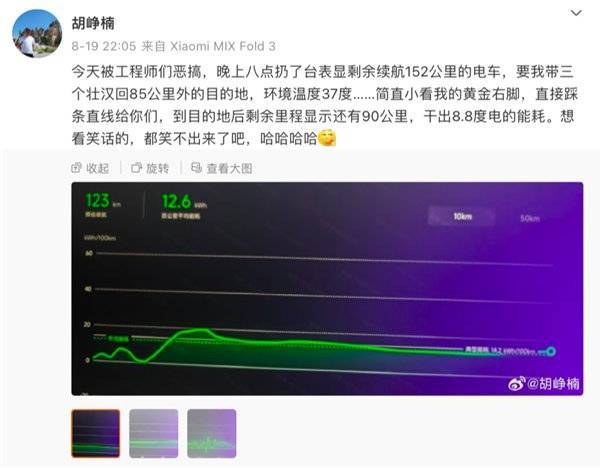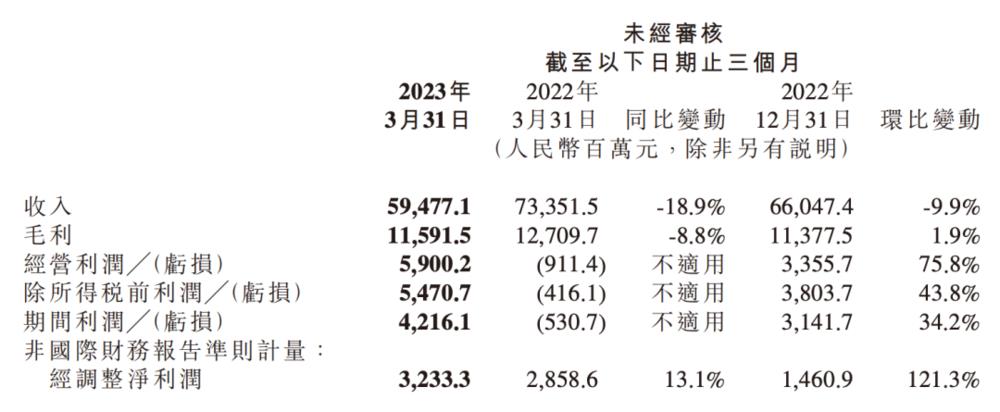Xiaomi car finally "landed"?
Although many people are concerned about Xiaomi’s every move to build a car, on August 14th, Lei Jun made almost no mention of this major strategy in that three-hour annual "growth" speech. The news that Baidu gave up building a car almost at the same time cast a new shadow over the prospect of Xiaomi’s car.
However, after ten days, it seems that the peak has turned around.
On August 24th, according to a report in Reuters, Xiaomi has been approved by relevant departments to produce electric vehicles, which means that the mass production and listing in 2024, which Xiaomi has been emphasizing, is just a short step away.
In fact, before this news appeared, Xiaomi Automobile had a lot of actions.
A few days ago, pictures of Lei Jun, chairman of Xiaomi Group, Lu Weibing, president of Xiaomi Group, Hu Zhengnan, a partner of Shunwei Capital Investment, and others doing a road test for new cars in Xinjiang have spread all over social media. At the same time, the news that the domain name of "xiaomiev.com" website was exposed and the factory recruited people also confirmed that Xiaomi started to accelerate.

Weibo screenshot
Winning the qualification of building a car means that Xiaomi can finally sit on the table and participate in this competition.
It’s just that the new energy market at that time when Lei Jun announced the construction of the car has changed greatly.
Today’s domestic new energy electric vehicle market is almost the super Red Sea comparable to the mobile phone industry. Xiaomi used to be the showstopper of the smart phone market. I don’t know if Xiaomi electric vehicle can still bear this role this time.
Two and a half years of "on paper"
It has been two and a half years since the official announcement of building a car in March 2021. No matter how many voices and industry changes there are in the market, Xiaomi seems to be unmoved and has always maintained a high degree of mystery about building a car.
On the one hand, of course, there are commercial confidentiality considerations. On the other hand, even if the product design is no better, it will not be able to enter mass production without obtaining qualifications. Too high-profile may cause trouble.
Previously, the industry generally believed that Xiaomi would undertake the qualification of building cars in Beijing Baowo, but in June this year, Beijing Baowo Automobile applied for cancellation of automobile production qualification by itself, which meant that Xiaomi could not directly obtain cooperation in qualification from Baowo.
At the same time, in the matter of seeking the qualification of building a car, Xiaomi is not the only one. Before that, Baidu, which also announced a high-profile car, never got the qualification of building a car.
At the beginning of the announcement of building a car, Xiaomi not only indicated that it would invest 10 billion yuan, but also directly gave the target of mass production and listing in 2024. However, due to concerns about overcapacity and slowing industry demand, relevant departments have been cautious when approving the company’s new electric vehicle production plan.
According to Reuters’s report in June, Tesla’s earlier plan to expand the Shanghai factory has not been approved. At the same time, some insiders said that Lucid Group, an American luxury electric vehicle manufacturer, wanted to produce cars in China, but was told that the possibility was very low.
According to the Financial Times in early August, Baidu finally gave up building its own car through Jidu, which was also related to the fact that it never got the qualification. In the end, it chose to take a step back and join hands with Geely Holding Group to create a new brand "Jiyue". Baidu and Jidu empowered the AI technology capabilities such as intelligent cockpit, intelligent driving and ERNIE Bot in the form of "technical partnership".
Xiaomi is the fourth enterprise approved by the National Development and Reform Commission since the end of 2017, which can be said to have crossed a big threshold.
However, domestic production and sales of new energy vehicles need "double qualifications", and Xiaomi has to obtain the approval of the Ministry of Industry and Information Technology from the formal mass production to meet the "Regulations on the Administration of New Energy Vehicle Manufacturers and Products Access".
The Ministry of Industry and Information Technology has not disclosed the information related to Xiaomi Automobile at present, which is probably why even if some media go to ask Xiaomi for evidence, the other party still chooses to be silent. After all, everything that may bring variables needs to be avoided before the dust settles and the production line really starts.
Is Xiaomi ready for the "hand-to-hand" battle?
Regardless of the level of investment or R&D strength, after years of baptism in the hardware industry, probably few people will be too worried about Xiaomi’s problems in design, R&D and production. However, Xiaomi’s own problem does not mean that its car-making career is smooth. After all, the external environment has changed.
First, the impact on its main business. The financial report released in May showed that Xiaomi’s revenue in the latest quarter dropped by 18.9%. In the case of declining demand for smart hardware such as mobile phones, Xiaomi urgently needs to shift its smart phone business to a more diversified direction.

Xiaomi 2023 Q1 Financial Report
Then there is Xiaomi facing the most unfavorable changes in the market environment.
The seriousness of this challenge can be seen from the utilization rate of domestic automobile production plants.
According to the data of the Passenger Car Association, by the end of 2022, the annual output of domestic automobile production lines (including factories producing internal combustion engines) will reach 43 million, but its utilization rate is currently only 54.5%, lower than 66.6% in 2017.
Serious overcapacity is also related to the increasingly fierce competition environment in the automobile industry.
Since the beginning of this year, major car companies have started a wave of price cuts, and the superimposed consumer demand has been sluggish, and competition has further intensified. Although the share of the electric vehicle market is increasing, the profits of car companies have not increased significantly.
On the day when Lei Jun delivered his annual speech, Tesla announced another price reduction promotion. Later, new forces including Ideal and Weilai had to continue to follow up.
Even though the G6, a new explosion model, was launched in the first half of the year, Tucki’s financial report for the new quarter was still ugly, with negative gross profit margin and increasing losses for two consecutive quarters.
According to market rumors, the price of the newly redesigned Tesla Model 3 may further drop to around 200,000 after removing the radar cost reduction and upgrading the manufacturing process. Once this model is listed in September or October and begins to deliver quickly, it will undoubtedly bring a new round of competitive pressure to the new domestic forces.
For Xiaomi Automobile, it is a false proposition whether it is necessary to continue the high cost performance it has been pursuing in the field of mobile phones.
Because, the core competitiveness of most domestic new energy vehicles that sell well today is "super high" cost performance, especially in the comfortable configuration and uncompromising safety configuration that some traditional car manufacturers are unwilling to make profits.
The brand image created by Xiaomi all the year round also makes it difficult for its cars to directly enter the high-end market like Weilai. Then, how to repackage the "cost performance" in large consumer goods like cars is probably an urgent problem that Xiaomi cars need to solve before listing.
Fortunately, what Xiaomi lacks most is the brand effect and exposure in the early stage. As long as the configuration is reasonable enough, the price also has an advantage. Even if ordinary consumers will shop around, some rice noodles will probably be willing to pay for Lei Jun’s last fight.
After all, Lei Jun once said that Xiaomi’s entry into the field of electric vehicles would be his last important entrepreneurial project. Recently, he also posted a photo of employees holding the banner "Fight for Xiaomi Automobile" on his personal social media account in Weibo.
In this last battle, Xiaomi needs to face hand-to-hand combat as soon as he comes up, and success or failure is only between thoughts.